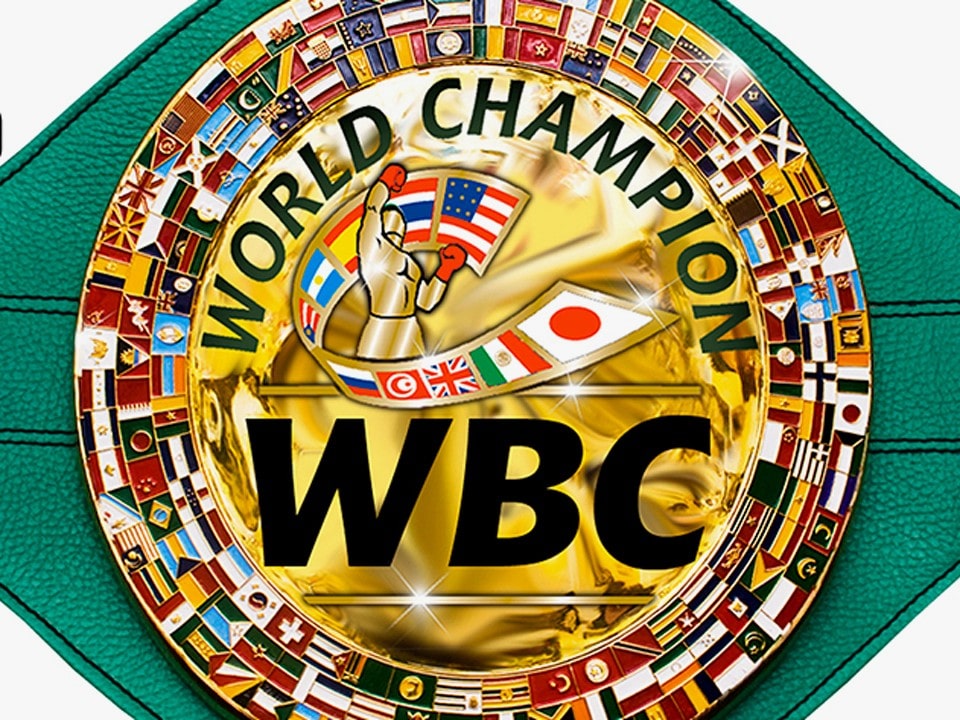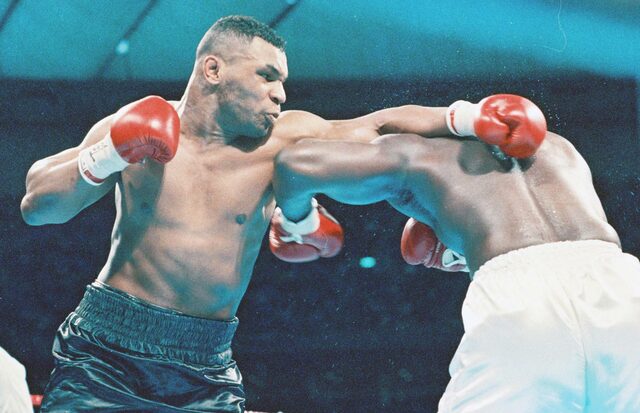
Boxing is a sport that requires a high level of skill and strategy, and it is extremely important to follow the rules.
However, various foul acts may occur during a match, and these acts can have a significant impact on the outcome of the match.
In this article, we will explain in detail the definition of foul acts in boxing, specific types of fouls, penalties when they occur, historical foul incidents, training methods to avoid fouls, and differences in international regulations. .
This will help you understand the rules of boxing properly and deepen your knowledge of how to maintain fairness as a sport.
目次
Basic knowledge of boxing fouls
Boxing has strict rules, and foul play can seriously affect the flow and outcome of a match.
This section delves into the definition and scope of fouls in boxing, as well as their impact on a match.
What is a foul? Its definition and scope
A foul in boxing refers to any act that violates the official rules of the match.
This includes behavior that threatens the safety of opposing players and unsportsmanlike behavior.
Examples of foul acts include low blows (punch below the opponent’s belt), head butts, attacks from behind, blows during clinch, and attacks using the ring ropes.
These actions are strictly prohibited in order to maintain the fairness of the match, and penalties are generally imposed if a rule violation is found.
Impact of foul play on the game
The impact that a foul play has on a game is immeasurable.
First of all, players who commit a foul are often given a warning, and if it is repeated, points may be deducted, or in the worst case scenario, it may lead to disqualification.
This puts the offending player at a disadvantage in the match.
Furthermore, foul play increases the risk of injury to opposing players, impairs the fairness and safety of matches, and can have a negative impact on the image of the sport as a whole.
Furthermore, for spectators and fans, matches where there are many fouls are less enjoyable to watch and can cause the value of the sport to decline.
These points also show how important it is to understand and respond appropriately to fouls in boxing.
Correct understanding and respect for the rules, not only by players, trainers, referees, but also by fans, contributes to the healthy development of sports.

Common offenses and their types
In boxing, some actions are clearly prohibited in order to ensure that matches proceed fairly and safely.
Here, we will explain in detail the definitions, criteria, and dangers of low blows and rabbit punches, which are particularly common offenses.
Low blow and its criteria
A low blow in boxing refers to a blow below the opponent’s belt line.
This behavior is particularly dangerous and strictly prohibited by competition rules.
Low blows are determined by the referee, who will issue a warning or deduct points based on whether the blow was intentional and the circumstances.
Depending on the severity of the offense, a player may be immediately disqualified.
The referees accurately monitor each fighter’s actions in the ring and strive to ensure that such unfair attacks do not go unnoticed.
Rabbit punch and its dangers
Rabbit punch refers to a blow to the back of the opponent’s head, especially the neck.
This type of attack is extremely dangerous and can cause severe brain damage and damage to the cervical spine.
Therefore, rabbit punches are strictly prohibited by boxing rules, and if discovered, heavy penalties will be imposed.
To protect the health and safety of athletes, rabbit punching is an act that must be avoided at all costs, and correct technique and ethics are always required from training to practice.
These violations not only compromise the safety and fairness of the game, but can also negatively impact a player’s career.
It is extremely important for athletes to accurately understand and abide by the rules in order to maintain the health of boxing as a sport.

Penalties and punishments for offenses
Foul acts in boxing are strictly sanctioned to ensure the fairness and safety of matches.
This section explains the commonly applied penalties for fouls: warnings, point deductions, and disqualifications.
Warnings and point deductions
When a foul occurs, the referee may first give the player a warning.
A warning is an initial response to make a player aware that they have violated the rules and to encourage them to prevent it from happening again.
If multiple warnings occur, it is common for referees to move towards point deductions.
Point deductions can directly affect the outcome of a match by removing points directly from a player’s scorecard.
Point deductions can make the difference between winning and losing, especially in close matches.
Disqualification due to violation
If serious or repeated fouls are observed, the referee may disqualify the athlete.
A disqualification removes the fighter from the match and effectively results in the fighter’s loss.
Disqualification most often occurs due to unsportsmanlike conduct or conduct that seriously threatens the safety of other competitors.
For example, deliberate headbutts or repeated low blows may be grounds for disqualification.
Disqualification can be said to be a very serious punishment as it affects the player’s career.
These penalties and punishments are an important means of ensuring that boxing is conducted fairly and safely.
As a player, you are expected to understand these basic rules and penalties and maintain an appropriate attitude toward the game.

Historical foul play incidents and their lessons
Throughout the long history of boxing, many foul incidents have occurred.
These incidents often lead to rule changes and the introduction of new regulations, contributing to the development of the sport.
In this section, we will focus on particularly famous foul play cases and the rules that changed as a result of them.
Examples of famous misconduct cases
Throughout history, several foul incidents have led to changes to boxing’s rules.
For example, Mike Tyson’s ear-biting incident on Evander Holyfield caused significant damage to the sport’s image and resulted in a subsequent emphasis on safety measures and sportsmanship.
This incident prompted boxing associations around the world to reaffirm the need for stricter penalties for unsportsmanlike behavior during matches, and led to the establishment of stricter codes of conduct.
Rules and regulations that have changed as a result
In response to foul play, boxing organizations have updated their rules and regulations.
After the Tyson incident, many boxing organizations increased penalties for unsportsmanlike conduct during matches.
Specifically, measures have been strengthened for players who commit foul acts, including immediate suspension of matches, long-term bans, and fines.
This makes players more cautious in their actions during matches and fosters a culture of respect for the rules.
These foul incidents and subsequent rule revisions demonstrate how boxing has matured into a safe and fair sport.
By looking back at foul incidents from each era, we can reaffirm the importance of rules and the spirit of sportsmanship.

Training methods to avoid fouls
Training to avoid fouls in boxing includes not only technical exercises, but also communication and psychological preparation between athletes and trainers.
This section delves into how to effectively communicate with trainers and how to manage and prevent foul play during practice.
Communication with the trainer
Good communication with your trainer is extremely important to avoid foul play.
Trainers are well-versed in both the rules and techniques of boxing, and will guide the fighters to ensure they are familiar with the rules and develop proper techniques.
Athletes should be proactive in asking questions about unclear rules or techniques to their trainers, and should always check that each movement during practice complies with the rules.
Additionally, by building a relationship of trust between trainers and players, it becomes possible to respond calmly and suppress foul behavior when pressure increases during a match.
How to deal with foul behavior during practice
Enforcing strict rules during simulation and sparring sessions is an effective way to prevent foul play during practice.
Trainers must immediately point out when a player performs a foul action and provide a detailed explanation of why that action is a foul.
Such instant feedback helps players correct their actions on the fly and avoid repeating similar mistakes.
It is also important for athletes to strengthen their self-monitoring and constantly ask themselves whether their actions comply with the rules.
Additionally, by providing penalties for committing fouls during training sessions, players can also develop their ability to withstand the psychological pressure of a real match.
Through these training methods, boxers will be able to improve their self-control ability to compete while adhering to the rules, and will be able to prevent foul play during matches.

Differences in boxing foul rules around the world
Although the rules of boxing are almost uniform internationally, there are differences in the rules of each country in detail.
This section details the major differences between America and Europe, as well as Japanese boxing foul rules.
Comparison of American and European rules
There are some differences in how boxing fouls are handled in the United States and Europe.
In the American boxing world, each state’s athletic commission establishes detailed rules, and matches are held based on these rules.
For example, many American states have very strict penalties for punching or headbutting during a clinch.
On the other hand, in Europe, particularly in countries governed by the British Boxing Board of Control (BBBoC), the rules restricting clinching during matches are somewhat looser and may be more flexible at the referee’s discretion.
Japanese boxing foul rules
In Japan, matches are held according to the rules set by the Japan Boxing Commission (JBC).
Japan’s rules are very strict in dealing with foul play compared to other countries, and clearly prohibit low blows, head butts, and punches to the back of the head.
Additionally, in Japan, it is common for intentional fouls during matches to result in immediate point deductions or disqualification, which fosters a culture that values sportsmanship.
These differences are rooted in each country’s culture and boxing history, and it is extremely important to understand and respect these differences in rules in international competitions.
When competing in a different country, athletes and trainers must thoroughly learn the rules of that country in advance and prepare appropriately.

Summary: The future of foul play and improvement measures
The world of boxing is constantly evolving, and the rules change as technology advances.
This section explores how technological innovations are impacting the rules and highlighting the importance of sportsmanship and ethics.
Changes in rules due to technological evolution
In recent years, advances in video technology have greatly contributed to the revision of boxing rules.
The introduction of video replays has reduced referee errors and made it possible to play games more fairly.
For example, video checks of suspected foul play can prevent incorrect penalty assignments and ensure fair outcomes for players and spectators.
In addition, wearable training devices can now analyze players’ movements and provide training to reduce the risk of foul play.
This allows players to improve their movements and naturally reduce the risk of fouls.
Emphasis on sportsmanship and ethics
Sportsmanship and ethics are very important in boxing.
All parties, from players to coaches to referees to spectators, are expected to respect the rules and fairness.
The organization is increasing its educational programs to help players learn the value of sportsmanship from early training.
In addition, we have established strict penalties for misconduct and strengthened deterrence against rule violations.
In the future, it is hoped that this type of education and system will be further developed and a culture in which all athletes can participate in fair competition be established.
Advances in technology and increased ethical awareness are key to the continued evolution of boxing.
This will make boxing as a sport safer, fairer and more appealing.



